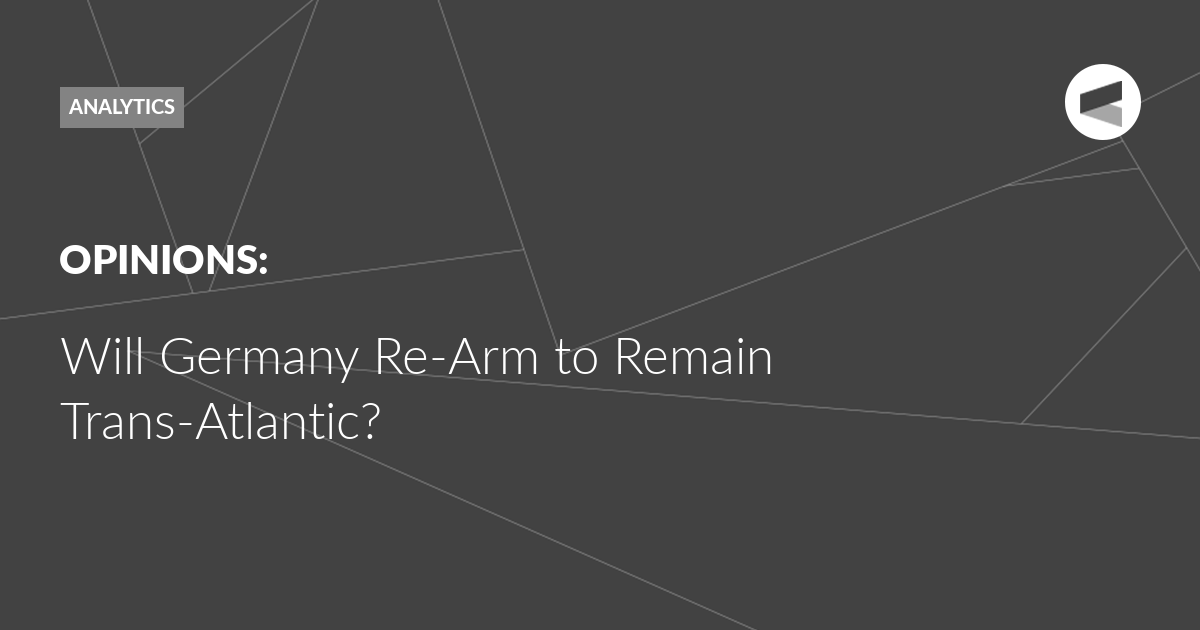A hundred years ago, the German army was in many ways similar to today’s Bundeswehr. The armed forces of the Weimar Republic were small in number, had a radically reduced material and technical base, were recruited on a voluntary basis and, despite all this, remained an expensive burden for Berlin. The Treaty of Versailles limited Germany’s military ambitions, guaranteeing France and Great Britain protection from German revanchism. The members of the Entente closely monitored the difficult process of dismantling the legacy of the Kaiser’s military machine and immediately responded to any attempts by German politicians and officers to circumvent the strict instructions of the victors.
Nevertheless, all these efforts could not prevent the rapid militarisation of Germany after 1933 (and especially in1935), which was hardly possible without secret preparatory work under the “yoke of Versailles”. Hitler’s Wehrmacht, according to the declared position of the Nazi leadership, was one of the pillars of the Third Reich and remained so until the very end of World War II.
Nowadays, the state of the German army can be considered a consequence of processes that mirror those that took place during the years of the Weimar Republic. After the annexation of the GDR by the FRG in 1990, restrictions on military development were also imposed on Germany, but they were mostly formal, such as bans on the development of weapons of mass destruction, and it did not elicit protests from German society. The declared maximum number of the Bundeswehr of 370,000 people assumed a reduction in the German armed forces, both the Bundeswehr and the military personnel of the former army of the GDR, but in a volume sufficient to ensure the security of the country.
Moreover, in the following years, the FRG leadership overfulfilled the plan, and by the mid-2010s the German army numbered only slightly more than 170,000 people, approaching the size of the Weimar Reichswehr. In 2011, conscription was abolished. After Poland and the Czech Republic joined NATO, the issue of territorial defence was removed from Germany’s agenda, along with the need to maintain large armed forces and numerous reservists. For Berlin, the army almost turned into a suitcase without a handle. At best, the Bundeswehr was viewed as an expensive status symbol confirming Germany’s claims to at least European leadership. The participation of German military personnel in foreign missions strengthened allied solidarity and helped overcome the phobias that had developed around the FRG about the revival of “German revanchism”. On the other hand, the presence of Bundeswehr soldiers added reputational legitimacy to such missions, given the “pacifist” image of German foreign policy. The consequence of the change in the role and place of the Bundeswehr in German society and the state was the gradual degradation of the German armed forces. The funding shortage led to the obsolescence and failure of military equipment, and problems with material support. Attractive conditions for contract military service did not solve the problem of personnel shortage. Politicians willingly discussed the unsatisfactory state of the German army, but usually it did not go beyond an ordinary talk. The post of head of the Ministry of Defence was considered a serious blow to the career of any ambitious politician. The escalation of the Ukraine crisis in February 2022 gave the government of Olaf Scholz an opportunity to change the rules of the game in German military policy. With the onset of the Zeitenwende (German for “change of eras’), talk about a large-scale reform of the Bundeswehr with rearmament, an increase in personnel, and even the return of conscription became not only acceptable, but also necessary. Defence Minister Boris Pistorius, with his characteristic rude directness, demanded new appropriations for military needs from the government at every opportunity. The special defence fund of 100 billion euros seemed inexhaustible only at first. Decades of underfunding, coupled with the bureaucratic nature of the military department, meant that new large expenditures on the Bundeswehr dissolved as soon as they reached the recipient.
Military reform is important for the German leadership both as part of current domestic political processes and as a key element of the foreign policy track.
Chancellor Olaf Scholz’s militarised rhetoric in February 2022 was met with enthusiasm by broad sections of German society. The promise to restore order in the most problematic ministry in Germany still ensures Defence Minister Boris Pistorius’s leadership in the approval ratings of German politicians. It is unlikely that this is due to the special belligerence of the Germans. Irritation stemming from the deplorable state of the German army, coupled with the inflation of the “Russian threat” by the media and German politicians, played its role.
Over time, the enthusiasm for the military reform has somewhat waned. However, it remains one of the central projects of the “traffic light” coalition, which may survive it. The German Ministry of Defence noted that by 2029 the Bundeswehr should be ready to counter external aggression. The planning horizon looks like a bid by Boris Pistorius and the SPD as a whole to participate in the leadership of Germany in the political cycle of 2025-2029. Given the expert expectations of the return of the “grand” coalition of the CDU/CSU and the Social Democrats after the next parliamentary elections, such tactics seem justified. The implementation of military reform means stable demand for the products of German arms manufacturers. In the context of the emerging trend of deindustrialisation of Germany due to the rejection of cheap Russian energy resources, manufacturers of weapons, military equipment and ammunition can feel more confident than their “civilian” colleagues. While the German car and chemical industries are considering production optimisation, arms companies are planning to expand their production to new sites.
In foreign policy, the military reform confirms Olaf Scholz’s course on strengthening trans-Atlantic unity and German-American relations. Thanks to the special defence fund and the general increase in spending on the Bundeswehr, Washington’s recent complaints about Berlin’s failure to meet the required military budget indicator of 2% of the country’s GDP have temporarily lost their relevance. Germany’s European neighbours, who have been fearing German weakness more than German strength for some time now, can breathe a sigh of relief – security issues are discussed in Germany with the same concern as in Eastern Europe and the Baltics. Even the project for a Bundeswehr base in Lithuania, around which there were long disputes about the nuances of financing, has moved forward.
As during the Cold War, the German leadership views security issues through the prism of the trans-Atlantic vision. The creation of the Bundeswehr in 1955 did not mean that Bonn wanted to say goodbye to the American military presence. On the contrary, the acquisition of Germany’s own armed forces increased its value in the eyes of the United States and other NATO members as a reliable and capable ally.
At present, the military reform in Germany is also intended, among other things, to strengthen Berlin’s position within the Alliance. Germany’s borders are not threatened by external invasion. However, Germany declares its readiness to act as a donor of security for its Eastern European neighbours – both as a military force (a base in Lithuania) and as a supplier of weapons in exchange for those sent to the Ukrainian armed forces. Even if this is not true, German politicians are interested in convincing their American partners that they can delegate European problems to the reliable hands of Germany and focus on the Asian region with China, which is causing concern.
In the United States itself, German “militarism” is cautiously approved, but time is not rushed. Olaf Scholz’s government (like Joe Biden’s) does not look like a long-lived one. Military reform in Germany is accompanied by loud statements, but is experiencing difficulties due to the long-standing problems of the German army: underfunding and bureaucracy. Even the need to increase the number of armed forces by tens of thousands of people has encountered difficult debates about the possible return of universal military service, albeit with wide opportunities to legally evade service. After such problems, Washington is interested in waiting for the end of the “traffic light” coalition and discussing a rebalancing of the burden of trans-Atlantic leadership with the new German government.
The Valdai Discussion Club was established in 2004. It is named after Lake Valdai, which is located close to Veliky Novgorod, where the Club’s first meeting took place.
Please visit the firm link to site






